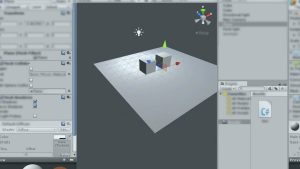
Alternative therapies have been gaining significant attention in recent years for their holistic approach to healing. Unlike traditional medicine, which often focuses solely on treating symptoms, holistic healing emphasizes the connection between mind, body, and spirit to achieve overall well-being. This approach involves exploring alternative therapies that complement or substitute conventional medical practices.
Understanding Alternative Therapies
Alternative therapies encompass a wide range of practices and treatments, varying from ancient traditional methods to contemporary approaches. These therapies can include acupuncture, herbal medicine, homeopathy, naturopathy, energy healing, meditation, yoga, and many others.
The Benefits of Holistic Healing
Adopting alternative therapies can bring numerous advantages to individuals seeking a balanced and sustainable approach to health. One of the key benefits of holistic healing is its focus on treating the root cause of ailments, rather than merely managing symptoms. By considering the mind, body, and spirit as a whole, alternative therapies promote long-term well-being and prevent recurring issues.
Another advantage of holistic healing is its emphasis on natural treatments that typically have fewer side effects compared to pharmaceutical drugs. These therapies often use natural remedies, such as herbs and supplements, which can support the body’s natural healing processes without burdening it with harmful chemicals.
Moreover, alternative therapies tend to prioritize personalized care by recognizing that each person is unique, with distinct needs and circumstances. By evaluating an individual’s lifestyle, environment, and emotional state, holistic healing practitioners can create tailored treatment plans for optimal results. This personalized approach contributes to a sense of empowerment and active participation in one’s well-being.
Integrating Holistic Healing with Technology
As technology advances, the integration of holistic healing and the tech industry has become increasingly prevalent. Various innovative devices and applications have been developed to enhance the effectiveness and convenience of alternative therapies.
For instance, wearable devices equipped with biofeedback sensors can provide real-time measurements of vital signs, such as heart rate, temperature, and stress levels. These devices help individuals gain valuable insights into their well-being and track their progress throughout their holistic healing journey.
Additionally, smartphone applications and online platforms offer a wide range of resources, including guided meditations, yoga classes, and educational materials. With just a few taps, individuals can access these tools, empowering them to practice self-care and explore alternative therapies at their own pace.
The Future of Alternative Therapies
As alternative therapies continue to gain recognition and support, their integration into mainstream healthcare is becoming more prevalent. With ongoing research and advancements in technology, holistic healing is poised to become an even more significant aspect of the healthcare industry.
By combining the best of traditional medicine with alternative therapies, a well-rounded approach to healthcare can be achieved, offering a comprehensive and individualized healing experience to patients.
Conclusion
Holistic healing, with its focus on an interconnected approach to wellness, offers individuals the opportunity to explore alternative therapies that can enhance their overall well-being. With benefits such as treating root causes, reduced side effects, personalized care, and the integration of technology, holistic healing is becoming increasingly popular in the tech-driven world we live in today. By embracing alternative therapies, individuals can actively participate in their healing journey and achieve a holistic balance between their mind, body, and spirit.

